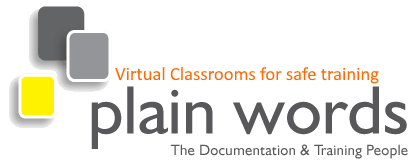Training Bulletin Issue 72
New Year, New Words
Happy New Year to all our readers – may 2019 turn out better than any of us thinks it’s going to be!
In the spirit of new things, we’re going to look at the ease with which English makes up and accepts new words. It contributes to English being the dominant international language – no matter what’s going on, we’ve usually got a word for it almost immediately. Of course, then you have to ask yourself at what point a word becomes common enough to put into your business writing.
Bingeable and other neologisms
The word ‘neologism’ actually means a newly-coined word, often used in speech and very likely in the media, but not yet accepted into formal language. And that’s what makes it a bit tricky – deciding at what point you can reasonably use such a word without confusing people or sounding ridiculous. You may feel that the safest approach is not to use neologisms at all, but you’d sound dead stuffy going around talking about electronic mail instead of email these days. So that still leaves the question of when such terms become mainstream.
One way to decide is when they make it into a dictionary. Publishers of dictionaries put out press releases about the new words they’ve decided to include in their latest editions and these are often widely reported as news stories. Readers find them entertaining as it’s a great way to argue about whether a new word is acceptable or not, and for the publishers it’s a brilliant idea: how else could you possibly get people interested in a new edition of a dictionary?
App, troll and trolling, crowdfunding, unfriend, bling, jeggings, textspeak have all made it into dictionaries and into common acceptance. But racne (acne on your chest), youthquake (a significant change resulting from the actions of young people), bracketologist (an expert in predicting outcomes of sports matches) – not so much. This suggests that choosing inclusion in a dictionary as your criterion may not be a reliable way of deciding whether to use a word.
Age and origin of word?
You’ll be much safer using words that were added to English a long time ago and from a respectable source. You can’t beat William Shakespeare for this and he added a lot of words that are now completely commonplace:
| bedazzled | The Taming of the Shrew |
| addiction | Othello |
| assassination | Macbeth |
| fashionable | Troilus and Cressida |
| eyeball | The Tempest |
| (started as a noun and we now also use it as a verb) | |
| inaudible | All’s Well That Ends Well |
| manager | A Midsummer Night’s Dream |
We also have a lot of words that started out as trademarks. Google, used as a verb – probably everyone knows that one, but did you know the following also began as brand names? Escalator, Thermos, Biro, Aspirin, Hoover, Kleenex and Zipper.
English also happily rams a couple of old words together to make new ones, for example:
- Smoke + fog = smog
- Breakfast + lunch = brunch
- Britain + exit = Brexit
- iPod + broadcast = podcast
- Breath + analyser = breathalyser
- Electricity + execution = electrocution
- International + network = internet
It depends on your company image and voice
This is probably the most reliable way to decide. If the word is relevant to your business and you see yourselves as progressive, then earlier adoption of new usages should work for you, especially if your clients are already using them. If your organisation sees itself as being more traditional or conservative, or works in an environment where these values are sought after, then newer words may be better avoided as they are more likely to annoy your readers. One safe guide is to wait until mainstream media such as the BBC is using the terms in everyday reporting and without quote marks around them.
It will be interesting to see what new words we’ll be using by the end of 2019.
Can you define your company’s image and voice?
If your staff could do with a bit more clarity on how this should guide their writing, you could take a look at our course
Perfect your Editing & Proofreading
It gives you a detailed approach to defining your organisation’s voice and ways to ensure that all your written communication supports the right style for you.

